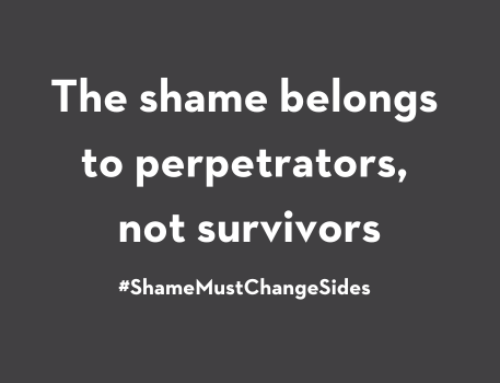
Lépine had a clear plan when he entered the engineering school that day. He strode into a classroom and separated the male and female students, asking the men to leave.
He asked the women if they knew what was going on. “I am fighting feminism,” he told them. After one of the women tried to reason with Lépine, he started shooting.
The rampage continued for about 20 minutes, as Lépine walked around the building, continuing to single out and attack women. Then he shot himself.
Lépine had a suicide note in his jacket pocket that blamed feminists for ruining his life. The note included a list of 19 women he wanted to kill because they were feminists.
Why We Remember
It’s been 26 years since the École Polytechnique Massacre, a hate crime that shook Canada and the world. The anniversary reminds us that, despite our many advances, we have yet to stop violence against women.
In 1991, the Canadian Government designated December 6 as the National Day of Remembrance and Action on Violence Against Women. It’s a day when Canadian flags fly at half-mast, candlelight vigils are held across Canada, and we stop to think about those 14 women. But it’s also a day to think about gender-based violence in all its forms, and remember that there have been many more casualties since 1989.
It’s a day to remember that it’s not only the sensational, headline-grabbing attacks that matter. We have to remain united against the sexual harassment, assault, domestic abuse, and sex trafficking that so often goes unnoticed, unreported, and unpunished.
Gender-based violence and harassment remains “pervasive” in Canada, reported a secret Status of Women Canada document that was made public in September. “While rates of male-on-male violence have diminished over time,” the report says, “rates of violence against women have not, and reporting has not increased.”
The report also pointed out that Canada has no comprehensive national strategy to address violence against women, unlike countries including the U.K., Australia, and Ireland.
Women in marginalized groups—particularly Indigenous women—face an even higher risk of violence. A recent Globe and Mail investigation found that Indigenous women in Canada are about 7 times more likely than non-Indigenous women to be targeted by serial killers.
But there are glimmers of hope on the horizon. The federal government recently committed to an inquiry on missing and murdered Aboriginal women. It has also pledged to work with advocates and experts on a federal action plan to address gender violence. The government is also urging all Canadians to sign an online pledge to #EndViolence.
There are also actions we can all take to address violence against women.
- We can get informed.
- We can speak out.
- We can create a culture of consent.
- We can learn how to help victims and survivors.
- We can raise our children to better understand healthy relationships.
So, on December 6, let’s remember the victims of the École Polytechnique massacre, and continue to light the way toward a brighter future for women and girls.
|
Geneviève Bergeron |
Maryse Laganière |
Learn More
- Day 11: Building a National Strategy on Sex Trafficking
- Day 10: Learning to Love Gender Diversity
- Day 9: Re-evaluating personal security with the Internet of things
Take Action
- Join GEN1. Become a monthly donor and help us build the first generation free of violence against women.
- Sign up for our e-newsletter to have our latest stories and resources sent to your inbox.
- Follow us on Facebook and Twitter to join a national conversation on gender equality.







